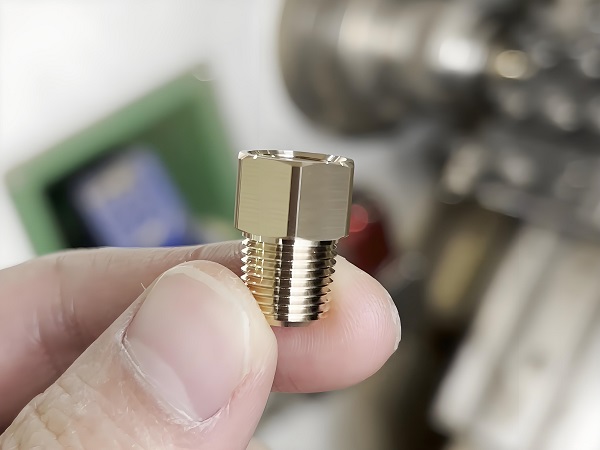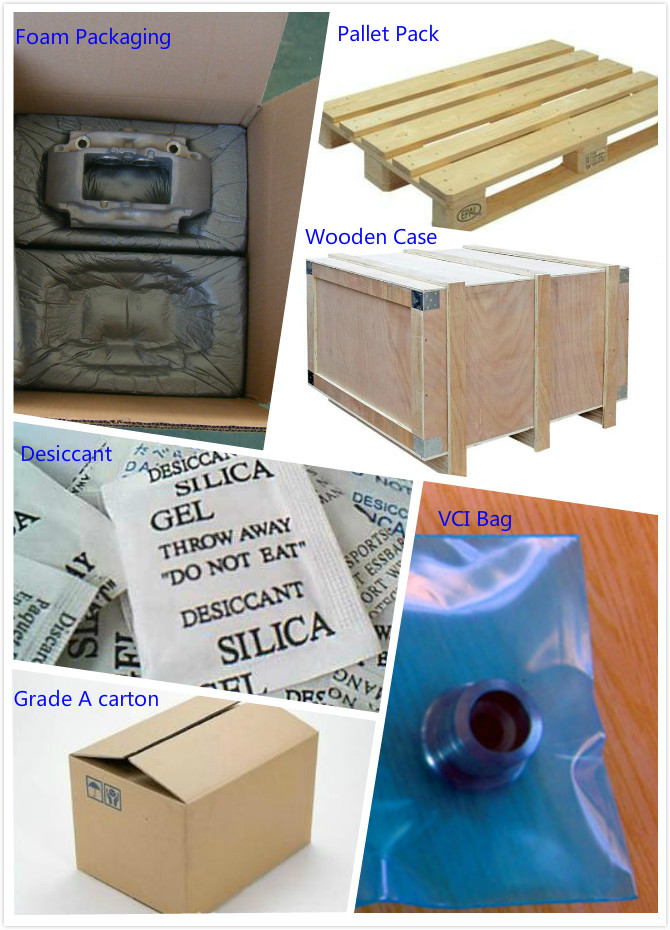![brass forging parts brass forging parts]() Three simplest steps in brass forging:
Three simplest steps in brass forging:
Forging : This is the core link of brass forging processing. In this process, the brass alloy is heated at high temperatures to make it soft, and then pressure is applied by forging equipment to make it shape. The forging process can effectively eliminate the internal defects of the material and improve the mechanical properties and reliability of brass forgings
Heat treatment : This is an important step to improve the performance of brass forgings. The grain structure of brass forgings can be adjusted by heat treatment methods such as quenching, tempering and annealing, so as to improve its strength, hardness and toughness
Machining : After heat treatment, brass forgings need to be machined, such as cutting, grinding, drilling and so on. This process enables precise control of the size, shape and surface roughness of brass forgings to meet the design requirements of the product
Product Advantages of Brass Alloy Precise Forged Ring:
Excellent material properties:Using HPb59-1 brass (59% copper, 1% lead, 40% zinc), with high strength, corrosion resistance and excellent machinability, lead significantly improves cutting efficiency,ensuring good ductility and electrical conductivity, while having high strength and wear resistance.
Precision forging technology: High temperature forging enhances material density, reduces internal defects, improves fatigue resistance and mechanical load capacity.
Good corrosion resistance: Brass alloys show excellent corrosion resistance in a variety of environments such as atmosphere, fresh water and sea water. The copper content and appropriate alloying elements of lead brass give it excellent corrosion resistance in atmosphere, fresh water and seawater ,making it maintain long-term stable physical properties in harsh working environments.
Customization capability: Support on-demand adjustment of dimensions, tolerances and special surface treatments (e.g., nickel plating, passivation) to meet stringent industry standards (e.g., ASTM, ISO).
Wide application fields: Brass precision forging parts are widely used in machinery manufacturing, shipbuilding industry, medical equipment and other fields. Its excellent rust and weather resistance, mechanical durability and processing properties make it excellent in these fields.
Product Use of Brass Alloy Flange Bushing CNC Machined:
Electric power industry : brass precision forging parts because of its good electrical and thermal conductivity, is widely used in generator, transformer, bus, cable and other power equipment manufacturing
Automotive manufacturing : In automotive manufacturing, brass precision forged parts are used to make key components such as engines, transmissions and brake systems to improve vehicle performance and safety
Aerospace : the aerospace field has very high requirements for materials. Brass precision forged parts are used in the manufacture of aircraft, rockets and other key components of aerospace spacecraft, such as engine blades, turbine disks , because of its high strength, high toughness and good corrosion resistance
Petrochemical : In the petrochemical industry, brass precision forged parts are used to make valves, pipes, pumps and other critical equipment to withstand high temperature, high pressure and corrosive media
Precision instrument : Brass precision forging parts because of its high precision and stable performance, is used in the manufacture of optical instruments, measuring instruments and other key components
Nuclear industry : In the nuclear industry, brass precision forged parts are used to make critical components such as reactor pressure vessels and control rod drive mechanisms to ensure the safe operation of nuclear facilities
Electronic and electrical : In the electronic and electrical industry, brass precision forged parts are widely used in the manufacture of connectors, switches, sockets and other components
Machinery manufacturing : Because brass has good machinability, especially excellent in the processing of complex shape parts, it is widely used in precision machinery manufacturing, such as the production of gears, bearings, screws and other precision machinery parts
Packaging:
![machining]()
FAQ
1Q: Do you have any quality certificate?
1A: Yes, we are ISO certified. And some of our factories are TS/16949 certified.
2Q: What are the advantages of precision forging process compared with traditional casting?
2A: Precision forging eliminates the internal pores of the material through high temperature and pressure forming, improving density and mechanical properties (such as fatigue resistance), more durable and more load-bearing than casting parts.
3Q: Are customized dimensions and finishes supported?
3A: Yes, the outside diameter, inside diameter, thickness and special surface treatment (such as nickel plating, passivation) can be customized to meet the customer's specific needs.
4Q: What reports will you provide when you submit the samples?
4A: Dimensional report with bubbled print, raw material cert.
5Q: Can you provide PPAP documents?
5A: Yes, if customer requires. But this will cost additional fees.



















 Three simplest steps in brass forging:
Three simplest steps in brass forging:






